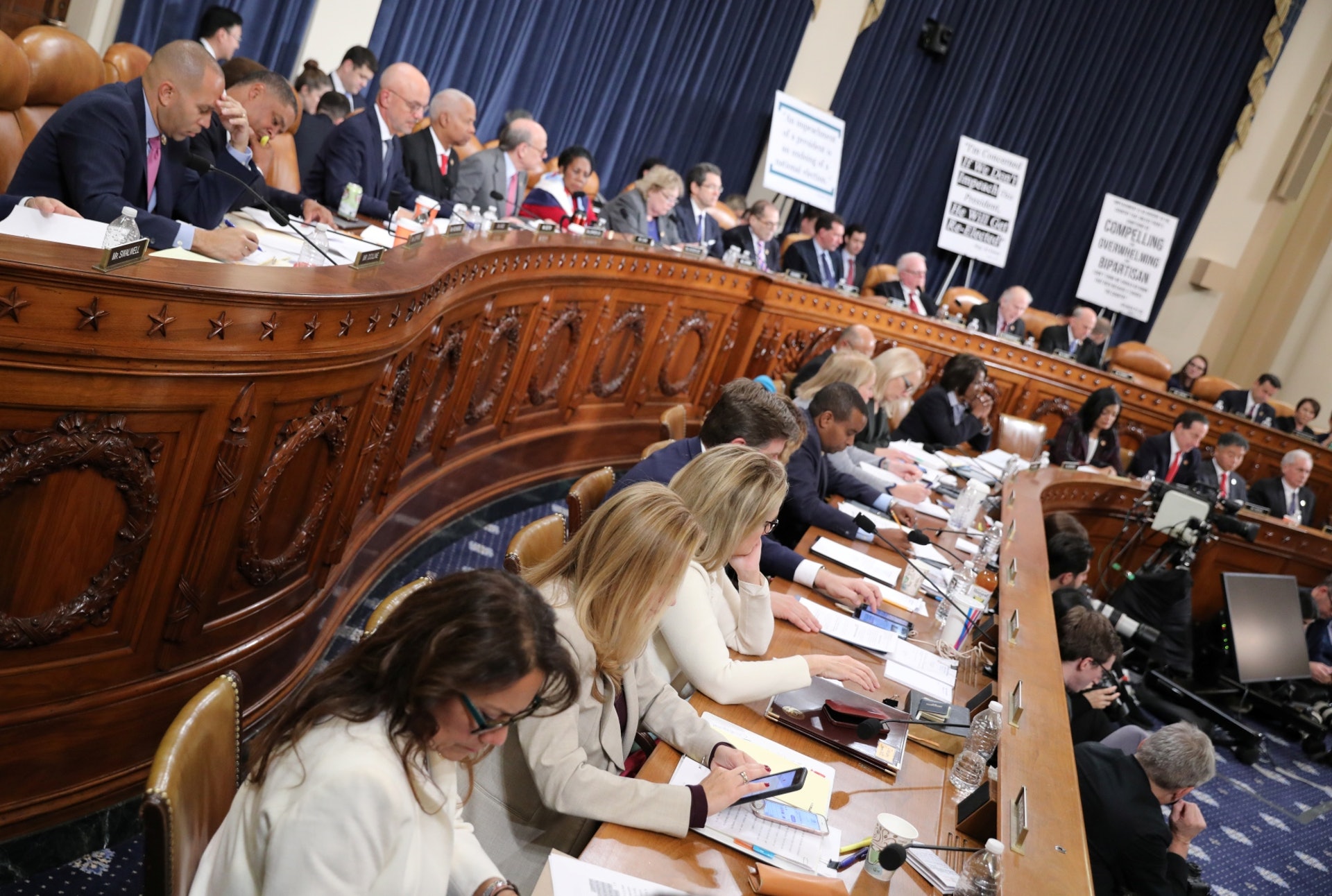In the first week of December, the US Democrats accelerated the pace of President Trump’s impeachment. First, last Tuesday (December 3), the House Intelligence Committee concluded its investigation and released a 300-page report, which collected witness testimonies from multiple closed-door and public hearings. Evidence such as a call log. On December 4, the House Judiciary Committee took over and opened a hearing on Trump’s lawsuit based on the investigation report. On December 5, Nancy Pelosi, Speaker of the House of Representatives, announced that the House of Representatives would draft impeachment clauses for Trump’s alleged abuse of authority. The Judiciary Committee will continue to hold a hearing on December 9 to begin drafting the impeachment clause.
From this, we can see that the Democratic Party’s intention to step up the impeachment case is extremely obvious. The party generally estimates that if the Judiciary Committee passes the draft impeachment clause, it will be submitted to the entire House of Representatives to vote before Christmas this year. Once it is approved, Trump will be formally impeached.
Impeachment clause counts
The report of the Intelligence Committee has two main conclusions: first, Trump abused the presidency, forcing Ukraine to investigate Joe Biden’s father and son to help his reelection campaign; second, Trump has blocked impeachment investigations against him Some witnesses were explicitly ignored by Congress. However, according to the New York Times, the Democratic Party also wants to add Trump’s “obstruction of justice” investigation in the “Russia-Gate” investigation.
At the level of the Judiciary Committee, there are four main directions for Trump’s “conviction”. One is the abuse of administrative authority; the second is bribery; the third is to hinder judicial investigations; The first two items are related to “Tongwumen” and the third item is related to “Tongwumen.” The last item targeted Trump and his team of lawyers in preventing impeachment investigations from obtaining relevant evidence.
To draft the impeachment clause, which identified Trump’s “negligence” and “crime,” the Judiciary Committee invited a panel of legal experts to attend a hearing to discuss whether the impeachment charge meets constitutional standards. The panel of legal experts consists of four witnesses: Noah Feldman, Michael J. Gerhardt, Pamela S. Karlan, and Jonathan Turley. Among them, Terry was a witness called by the Republican Party, and the remaining three were called by the Democratic Party. It is also because of this partisan demarcation that the opinion of the legal expert group has a 3 to 1 partisan color.
Witness highlights bipartisan division
All three legal experts summoned by the Democratic Party believe Trump should be impeached. Karan believes that Trump’s actions against Ukraine constitute another crime listed in the Constitution: bribery; Gerhardt also mentioned that Trump has committed multiple impeachable crimes, including asking for personal support from a foreign leader, In exchange for the power he can exercise, hindering justice and congressional justice; Feldman believes that Trump pressured Ukraine by shelving military aid and White House meetings, and asked the other president to give him “political support”. A typical abuse of power.
Terry, called by the Republican Party, believes that Trump should not be impeached unless he commits a major crime, but the current evidence is extremely insufficient. He submitted a 53-page written statement to the committee, stating that he was not a supporter of Trump, but that the impeachment case promoted by Democrats had perfunctory and weak evidence, did not meet the standards for impeachment, and could set up a dangerous future precedent. In response to Democrats’ identification of Trump’s bribery, Terry believes that their interpretation of the concept of bribery is too broad to describe Trump’s behavior. He also believes that Trump should not be accused of obstructing Congressional investigations, because if the relevant witnesses are called without going through the courts, Congress also lacks procedural legitimacy and may even constitute an abuse of the House of Representatives.
It can be seen that the hearings of the Judiciary Committee were still abducted by bipartisan politics, again highlighting the rivalry between the two parties. The Republicans criticized Democrats and these legal experts invited by the Democratic Party for discriminating against Trump and did not have relevant factual evidence. The three experts’ thinking formula is to drive Trump out of office. The experts invited by the Democratic Party countered that their testimony was based on the report of the Intelligence Committee.
In fact, from the intelligence committee’s collection of evidence to the judicial committee’s review of the evidence and drafting of impeachment clauses, the Republican obstruction is seen, but this obstruction is mostly futile. According to the Republican Party ’s 2020 senator agenda, January has been completely vacated for the impeachment case. In other words, the Senate Republicans and Trump are ready to deal with the Senate’s “trial” process. From the current point of view, the Republican Party has 53 seats in the Senate, and the impeachment investigation promoted by Democrats in the House of Representatives has not yet caused the Republican Party to show obvious rebellion. This impeachment political storm is expected to end in a Senate verdict on Trump’s acquittal.











